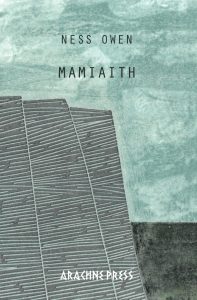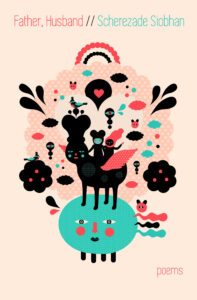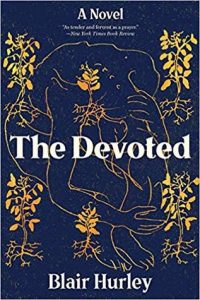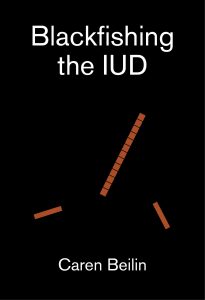Poetry. 48 pgs. Arachne Press. August 2019. ISBN: 978-1-909208-77-3.
“Mamiaith” (pronounced máh-mee-aith) is Welsh for “mother-tongue,” a title that previews the complexity and fecundity of the origins of Ness Owen’s poems in this collection. And yet the first word of the first poem is “he”―“Willows” is a family tale with a missing child, and a grandfather who is determined to remember her. How to speak to what is lost, of what is lost, in a language that had been almost lost―these are the concerns of this remarkable book.
At one point, the speaker refers to her generation as “children of the Not.” This is a reference to The Welsh Not, an object and a practice used to stigmatize and punish schoolchildren who spoke Welsh between roughly the middle of the 19thcentury and as late as the 1940s. As a result, fluency in some families became the privilege of the older generation—the author’s grandmother’s, but not her parents. As Owen reclaims the language both as her theme and tool, she writes “The ache of ill-fitting / hand-me-downs / is like the ache of saying no,” and the reader is compelled to find a metaphor in these lines. What does, in a single person’s experience, constitute the difference between heritage—an heirloom—and a hand-me-down? A legacy of an adversarial language policy can certainly be powerful enough to warp one into the other, one’s birthright into something too ill-fitting and worthless to be desired.
And yet, languages, dissolved in the darkness of the past, the obscure and buried ancestral lives, the dusk of chapels where a soul may have gone to plead for a reprieve (or “fill the void with Jesus, Mars Bars and vodka,” as another poem advises), holds truths otherwise inaccessible—truths we forego at our own risk, as the powerful “Laboon” warns. “Laboon” is a name for tsunami in the language of the nomadic Moken people of Thailand, who survived the 2004 tsunami because of their stories. “This is our universe / If there is no one / to tell our stories / how will we prepare?”
The sea, as the one persistent constant of the shared imagination that makes a people speak a specific language, rises repeatedly in these poems. It is, perhaps, from its permanence that Owen’s voice draws it defining quality: it is unafraid, commanding, anthemic; hers is a rare gift of a public poet, a voice that dares to expectto be heard when it speaks of public, communal matters. “Power lies in the / unexpected” she writes, right before she takes up the environmental legacy of the nuclear power projects which includes plans to dredge 300,000 tons of mud from the site of Hinkley Point station in Somerset, England site and dump it off Cardiff Bay. This is, she makes clear, yet another dispossession carried out by the colonial power:
(It’s because they can.)
Couldn’t we find words, our
mother-tongue has so many.
Didn’t she teach us how to say no?
One needs the right words—the proper language—to assert oneself, and perhaps if one could communicate one’s difference, separateness, sovereignty, one could also reclaim the right to be the custodian of where one lives. Or, having been “thrown” a language “in pieces that fit so neatly / inside my head but will / not fall onto the page,” shall one embrace the fragmentation, and respond, as Owen’s speaker does, with “10 Ways to Say No (to radioactive mud) Without Using the Word ‘No’” which include singing, using a bilingual sign, and other communication maneuvers that will make any lobbyist proud?
Whatever else these poems want from their readers, they certainly refuse to be “wasted on the non-/believer” and the magic of Owen’s work lies in how she makes believers of us all—whether we are reading her in Cardiff or in Colorado Springs.
Mamiaith will be published in August of 2019. You can pre-order the book now through Arachne Press.
NESS OWEN lives on Ynys Môn off the North Wales coast. This is her first collection, and is partly bilingual. The poems journey widely from family and motherhood, to politics, place and belonging: an underlying connection to the earth of Ness’ home, that feeds a longing/desire/determination to write in the Mamiaith (Mother tongue) that she speaks, but did not learn to write fluently. The interplay of languages and the shifts of meaning from one to the other feed the musicality of the poems.
NINA MURRAY is author of Minimize Considered, a chapbook, and her poetry has appeared in numerous journals, including Ekphrasis and The Harpoon Review. Her translations from Russian and Ukrainian include Peter Aleshkovsky’s Stargorod, and Oksana Zabuzhko’s award-winning The Museum of Abandoned Secrets. She grew up in Lviv, in Western Ukraine, and holds advanced degrees in linguistics and creative writing. As a member of the U.S. diplomatic corps, she has served in Lithuania, Canada, and Russia.
Like what you’re reading?
Get new stories or poetry sent to your inbox. Drop your email below to start >>>
OR grab a print issue
Stories, poems and essays in a beautifully designed magazine you can hold in your hands.
GO TO ISSUESNEW book release
We’re thrilled to release our first novel into the world. Alligator Zoo-Park Magic by C.H. Hooks has been called “A new spin on the mystical, mythical south.”
GET THE BOOK



